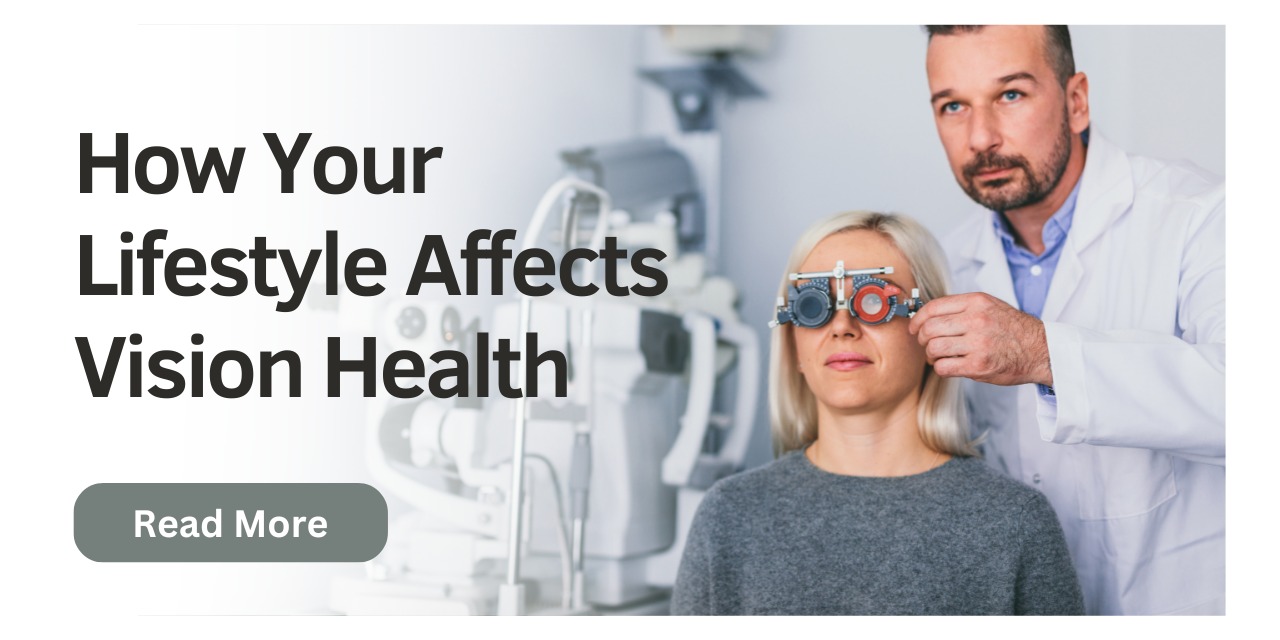Maintaining good eye health is essential for overall well-being, and our lifestyle choices play a significant role in it. From the foods we eat to the habits we adopt, various factors can impact our vision. Understanding how these choices affect eye health can help you make informed decisions to protect your eyes and ensure they stay healthy throughout your life.
Understanding the Connection Between Lifestyle Choices and Eye Health
Our daily habits and choices have a profound effect on the health of our eyes. Here’s how different aspects of your lifestyle can influence your vision:
⏯ Nutrition and Eye Health
Diet is one of the most impactful lifestyle choices when it comes to eye health. Consuming a balanced diet rich in vitamins and minerals can significantly benefit your vision. Key nutrients include:
- Vitamin A: Essential for maintaining good vision and preventing night blindness. Foods rich in vitamin A include carrots, sweet potatoes, and spinach.
- Omega-3 Fatty Acids: Found in fish like salmon and sardines, omega-3s help protect the eyes from age-related macular degeneration (AMD) and dry eye syndrome.
- Lutein and Zeaxanthin: These antioxidants, found in leafy greens and eggs, help protect the retina from harmful light and reduce the risk of cataracts.
Incorporating these nutrients into your diet can enhance eye health and reduce the risk of various eye conditions.
⏯ Sun Protection
Exposure to ultraviolet (UV) rays can damage your eyes and increase the risk of cataracts and macular degeneration. Protecting your eyes from UV rays is crucial. To safeguard your eyes:
- Wear Sunglasses: Choose sunglasses that block 100% of UV rays. Look for labels indicating UV protection.
- Use a Hat: A wide-brimmed hat can provide additional protection from the sun’s rays, especially during peak sunlight hours.
Regular use of UV-protective eyewear can prevent long-term damage and support overall eye health.
⏯ Screen Time and Eye Strain
With the increasing use of digital devices, eye strain has become a common issue. Prolonged screen time can lead to digital eye strain, characterized by symptoms such as dry eyes, blurred vision, and headaches. To minimize eye strain:
- Follow the 20-20-20 Rule: Every 20 minutes, take a 20-second break and look at something 20 feet away.
- Adjust Lighting: Ensure proper lighting when using screens to reduce glare and minimize strain.
- Use Blue Light Filters: Many devices have settings or apps that reduce blue light exposure, which can be beneficial for reducing eye fatigue.
Managing screen time and adopting these practices can help alleviate digital eye strain and maintain eye comfort.
⏯ Smoking and Eye Health
Smoking has a detrimental effect on eye health, increasing the risk of developing conditions like AMD, cataracts, and optic nerve damage. Quitting smoking can have immediate and long-term benefits for your vision. If you smoke, consider seeking support to quit, and avoid exposure to secondhand smoke to protect your eyes.
⏯ Regular Eye Exams
Regular eye exams are crucial for detecting eye conditions early, even before symptoms appear. Eye exams can identify problems like glaucoma, macular degeneration, and diabetic retinopathy. Early detection and treatment can prevent progression and preserve vision. Schedule comprehensive eye exams with an optometrist or ophthalmologist as recommended, especially if you have risk factors or notice changes in your vision.
Conclusion
Your lifestyle choices have a profound impact on your eye health and safety. By adopting a healthy diet, protecting your eyes from UV rays, managing screen time, avoiding smoking, and scheduling regular eye exams, you can significantly reduce the risk of eye problems and maintain good vision throughout your life. Dr. Preet Inder Singh at Dr. PreetInder Singh Eye Hospital, a leading Eye Hospital in Patiala. The importance of these habits for preserving your vision and overall well-being. For more information or to schedule an appointment, please call us at +911752227169.

